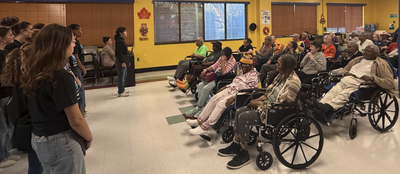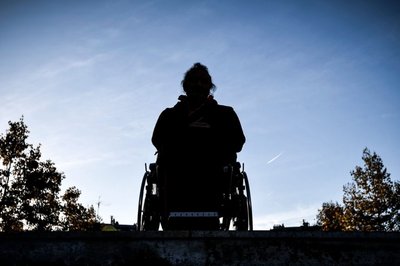
After I left [Target] for the caucus, it suddenly occurred to me that none of those workers would be caucusing that night."Of course, organizers tried to mitigate this. Democrats set up satellite caucuses for those who were out of town or couldn’t fit the event into their schedule. But only 16 percent of Iowa’s eligible population attended the caucuses last election. By comparison, the turnout in New Hampshire, which has a primary instead of a caucus, was about 54 percent in that same election. In order for us to elect representatives who support the working class, we need to make voting accessible for all --especially when we are dealing with issues in 2020 that directly impact this group. At Target, I work with students in community college paying for their own education. I work with mothers raising multiple children. I work with people who see themselves living on a Target paycheck for the rest of their career. These are the voters who need to have a say on issues such as raising the minimum wage, implementing affordable healthcare and expanding access to college education. I also noticed the lack of racial diversity and age range. At my precinct, the crowd was overwhelmingly white and members of older generations; and looking at the data from the entire night, my caucus site was not an outlier.
An important step in making our elections more democratic would be to use the primary system in all 50 states, which would make voting more accessible for everyone."If the Democrats want to defeat Donald Trump, they must prioritize listening to diverse perspectives. This means encouraging high voter turnout among different generations, races, genders and identities. The emphasis placed on the Iowa caucuses holds us back. The Iowa problem highlights a larger issue at the national level—our nation’s reliance on tradition and the status quo when it comes to its elections. An important step in making our elections more democratic would be to use the primary system in all 50 states, which would make voting more accessible for everyone. Furthermore, states like South Carolina that have large minority populations might be better off going first in the electoral process. Finally, primary elections should depend on the state's popular vote instead of using the delegate process, which decreases the power of an individual’s voice. My biggest takeaway from attending the Iowa caucuses was that Americans need to change the way we think about our elections. By looking toward the future instead of clinging to ineffective traditions we can help ensure that voting is a right exercised by all regardless of races and income levels – and not just a privileged subset of society.
If you're a student interested in submitting a piece for Student Voice sharing your thoughts about the primaries or Election 2020, please send an email to Vic Pasquantonio at vpasquantonio@newshour.org
For monthly updates containing teacher resources on Election 2020, click here . Sign up for short education highlights from the PBS NewsHour here .



